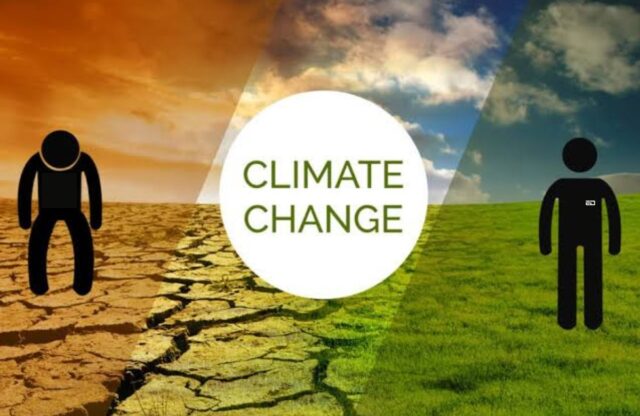According to a new report, nine states in India stand among the world’s top 50 regions at risk of damage to the built environment due to climate change hazards. This new report finds that Asian provinces are more prone to the threat, as 114 out of the top 200, feature in this list.
The study takes into account the impact on the built environment due to rigorous climate change. Built environment refers to human-made (versus natural) resources and infrastructure designed to support human activity, such as buildings, roads, parks, etc.
Who Has Published The Report?
This report has been published by the Cross Dependency Initiative (XDI). XDI is part of the Climate Risk Group, a group of companies committed to quantifying and communicating the cost of climate change. XDI calculated the hazards to the built environment, by the physical climate, in over 2600 states and provinces, across the globe, in 2050.
The territories were compared based on modeled projections of damage to properties from extreme weather conditions. Top among the eight climate change hazards are flooding and coastal inundation. The hazards also include forest fire, soil movement, extreme heat, and wind.
Findings Of The Report
XDI found that Asia dominated the list, with a special focus on India and China. According to the analysis, US, China, and India have more than 80% of the top 50 risked provinces in 2050. XDI noted that the provinces not featured in the list are not safe, either. Those provinces do not feature in the list because they have a lesser number of residential and commercial buildings.
XDI notes, “In terms of the overall scale of damage risk, and terms of risk escalation, Asia has the most to lose as climate change extreme weather increases, and the most to gain from preventing worsening climate change and accelerating climate-resilient investment.”
Also Read: A Woman From Canada Becomes The First Person To Be Diagnosed With Climate Change
India has the highest number of states in the top 50. These 9 states include Bihar at 22nd spot, Uttar Pradesh at 25th spot, Assam at 28th spot, Rajasthan at 32nd spot, Tamil Nadu at 36th spot, Maharashtra at 38th spot, Gujarat at 48th spot, Punjab at 50th spot, and Kerala at 52nd spot.
Assam is predicted to have a maximum increase in climate risk to the built environment, of around 330%, as compared to 1990. Mumbai, being the economic hub of the country, is at risk too.
China also dominates the ranking in the top 100 with cities like Beijing, Jakarta, Hồ Chí Minh City, Taiwan, and provinces situated along the floodplains and deltas of the Yangtze and Pearl rivers. In the US, the most developed cities of California, Florida, and Texas would be most affected.
Other countries with provinces and states in the top 50 include Brazil, Pakistan, and Indonesia. In Europe, London, Milan, Munich, and Venice are the top occupants on the list.
Significance Of The Study
Rohan Hamden, XDI CEO said, “This is the most sophisticated global analysis of physical climate risk to date, offering a breadth and depth and granularity on a scale we haven’t seen before. Now, for the first time, the finance industry can directly compare Mumbai, New York, and Berlin using a like-for-like methodology.”
This is the first time that there has been a physical climate risk analysis, focused entirely on the built environment, comparing every state, province, and territory in the world. The world’s first analysis of the built environment exposes its vulnerability to climate change.
The report is particularly significant for investors. Extensive built infrastructure often overlaps with high levels of economic activity and capital value. The report shows that the world’s largest emerging economies will be affected by climate change.
There have been various studies analyzing climate change in the world, but the states hardly are paying any attention to this problem. This study can be a turning point as the states may now contemplate climate change linked to their most important concern, the economy.
The State should consider climate change as an immediate problem now.
Image Credits: Google Images
Sources: The Times Of India, Hindustan Times, The Mint
Find the blogger: Katyayani Joshi
This post is tagged under: climate risk, XDI Report, US, China, India, Asia, Uttar Pradesh, Bihar, Maharashtra, Assam, environment, built environment, man-made structure, natural, climate change, hazard, sponsors, investors, State, problem, extreme weather, Mumbai, Economic Hub, California, Florida, buildings, roads, infrastructure, commercial, industrial, Pakistan, Indonesia
Disclaimer: We do not hold any right, or copyright, over any of the images used. These have been taken from Google. In case of credits or removal, the owner may kindly mail us.
Other Recommendations:
Your Cup Of Coffee Can Contribute To Climate Change, Here’s How





































[…] Also Read: World’s Top 50 Regions Facing Climate Risk Include UP, Bihar […]